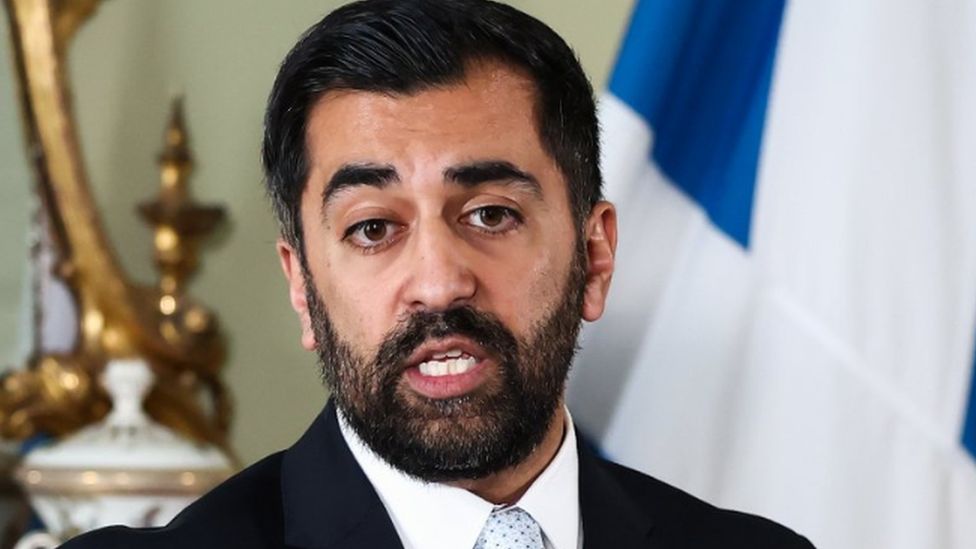Humza Yousaf's decision follows on from SNP political time bombs
- Published

In his brief stint as Scotland's first minister, there is one moment for Humza Yousaf I will never forget.
Last October, Mr Yousaf was embarking on a political ritual - a round of interviews with political editors before his party's conference in Aberdeen.
But here was a man pained and exhausted, excusing himself between interviews to take calls from his wife and family.
His in-laws were trapped in Gaza. He was struggling to hold it together.
Thankfully, they were to escape safely. The personal anguish would end.
Politically though, things were never less than difficult for Humza Yousaf.
He assumed power with time bombs ticking everywhere. And loudly.
Firstly, the unavoidable political logic of the Scottish National Party's mammoth stint in power.
They have run the Scottish government since 2007. Ageing is inescapable - and that is no different for political parties.
Then throw into the mix that avenues towards another independence referendum looked increasingly like dead ends, particularly in the short and medium term.
The prospect of indyref2, to use the shorthand, was a glue that helped hold the SNP together. And guess what happens when the glue gets loose.
Then there was the no small matter of the former First Minister Nicola Sturgeon and her husband, the SNP's former chief executive Peter Murrell, finding themselves of interest to the police.
That whole affair rumbles on, providing a nightmarish backdrop for Mr Yousaf.
Next throw in the almightily toxic issue of the trans rights debate.
And then the handling of the collapse in the relationship with the Scottish Greens.
And this is where the crux of this situation comes to a head.
The legacy of longevity in office, some relationships among Scottish nationalists smashed.
Humza Yousaf concluded over the weekend that there was no deal to be done with the Greens - they would vote to get rid of him.
Crucially, he concluded he was also not willing to do a deal with Alba - the party led by his predecessor bar one, one Alex Salmond.
Not because the deal on offer was necessarily entirely unpalatable, but because, in the end, it was with him.
Yes, the same Mr Salmond who led the SNP and led Scotland into the independence referendum in 2014, who was cleared, in a hugely high-profile court case of sexually assaulting nine women while he was Scotland's first minister, and who fell out volcanically with Nicola Sturgeon.
The depth of those enmities, the reality of that chasm, we see the consequence of today.
Mr Yousaf therefore realised the numbers did not add up. He was done for.
And so, he concluded, better to voluntarily acknowledge that and resign, than be humiliated by arithmetic within days.
Related Topics
- Published29 April
- Published29 March